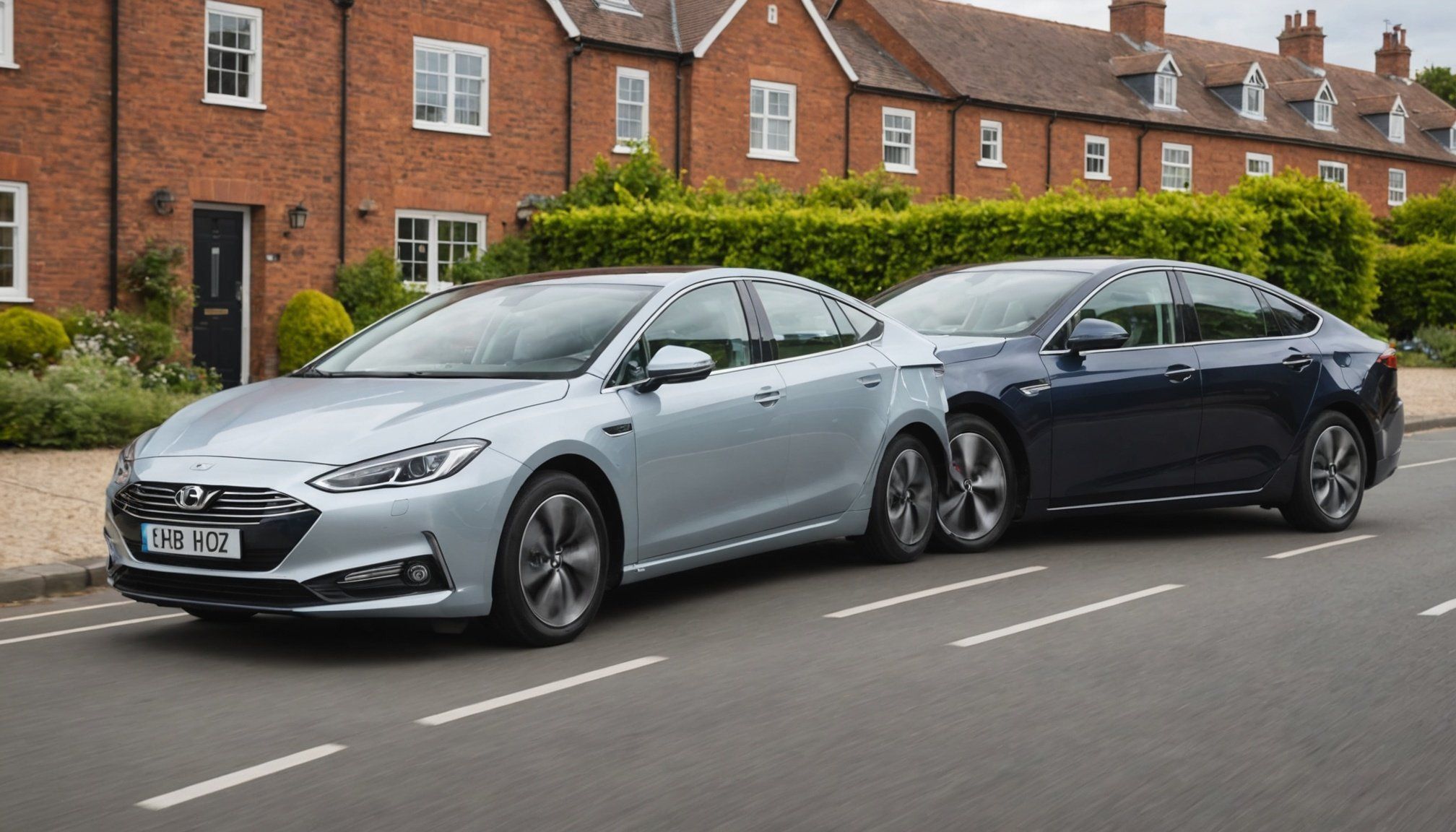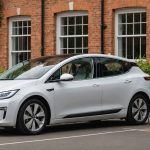As the automotive landscape continues to evolve, more drivers are considering the switch to hybrid vehicles. These cars, which combine a conventional petrol or diesel engine with an electric motor, offer a unique driving experience that appeals to many. In the UK, where environmental concerns and rising fuel costs are at the forefront of discussions, understanding the benefits and drawbacks of owning a hybrid vehicle is essential. With this article, you will explore the pros and cons of hybrid cars, helping you make an informed decision about whether a hybrid is the right choice for your driving needs.
Understanding Hybrid Vehicles
Hybrid vehicles operate using a combination of an internal combustion engine and an electric motor. This dual system allows the vehicle to switch between using the petrol or diesel engine and the electric battery, optimizing fuel efficiency and reducing emissions. In general, hybrids can be classified into two categories: plug-in hybrids and traditional hybrids.
Also read : How can understanding your vehicle’s warranty help you make better service choices?
Plug-in hybrids come equipped with a larger battery that you can charge using a standard electrical outlet. This means that you can drive on electric power alone for short distances, significantly reducing fuel consumption during daily commutes. On the other hand, traditional hybrids recharge their batteries through regenerative braking and the internal combustion engine, which means they don’t require external charging.
For many drivers, the appeal of hybrid vehicles lies in their ability to provide a smoother driving experience. The electric motor can deliver instant power, making acceleration more responsive. Furthermore, hybrids tend to have lower emissions than their purely petrol or diesel counterparts, contributing to a lower carbon footprint. Consequently, you can enjoy a more environmentally-friendly driving experience without sacrificing performance.
Also to discover : What should you do if you suspect your car’s brakes are failing?
As you consider the prospect of purchasing a hybrid, the technology behind these vehicles is crucial to understand. The balance between electric and fuel power can provide various advantages, especially in urban environments where stop-and-go traffic can be taxing on traditional combustion engines. This efficiency can translate into significant savings over time, particularly as fuel prices fluctuate.
The Pros of Owning a Hybrid Vehicle
Owning a hybrid vehicle presents numerous advantages that make them attractive to potential buyers. One of the most significant benefits is their superior fuel efficiency. Hybrid vehicles often achieve much higher miles per gallon (MPG) ratings compared to conventional vehicles. This efficiency can lead to substantial savings on fuel costs, especially for those who frequently commute or engage in long-distance travel.
Additionally, hybrids generally produce lower emissions than their petrol or diesel counterparts. In the UK, this aspect is particularly appealing given the country’s strict emission regulations. Low-emission vehicles often qualify for tax benefits, congestion charge exemptions, and access to clean air zones, which can significantly reduce the overall cost of ownership.
Another advantage of hybrid vehicles is their performance capabilities. Thanks to the electric motor, hybrids can provide smooth acceleration and often deliver greater torque than traditional combustion engines, which enhances the overall driving experience. The regenerative braking systems in these vehicles capture energy typically lost during braking, recharging the battery without requiring external power sources, which further contributes to fuel savings.
Moreover, hybrids are relatively easy to drive and maintain. With the automotive industry gradually shifting towards electric and hybrid technologies, many mechanics are becoming proficient in servicing these models, making repairs and maintenance straightforward. Additionally, the durability of hybrid components, particularly the batteries, has improved significantly over the past few years, resulting in longer lifespans and reduced replacement costs.
Ultimately, the decision to invest in a hybrid vehicle can lead to long-term financial savings, environmental benefits, and an enjoyable driving experience.
The Cons of Owning a Hybrid Vehicle
While there are many compelling reasons to consider a hybrid vehicle, several drawbacks must also be acknowledged. One primary concern is the initial purchase cost. Hybrid vehicles tend to be more expensive than standard petrol or diesel models. Although the price gap has narrowed over the years, the upfront investment remains a significant factor for many potential buyers.
Another notable issue is the battery life and potential replacement costs. Although advancements in technology have improved the longevity of hybrid batteries, they still have a limited lifespan and can be costly to replace. Depending on the make and model, replacing a hybrid battery may run into thousands of pounds, which could affect the vehicle’s overall value if you decide to sell it.
Moreover, while hybrid vehicles excel in urban driving conditions, their fuel efficiency may decline during highway driving. The electric motor’s benefits are less pronounced at higher speeds, where traditional petrol or diesel engines can perform more efficiently. This means that for those who frequently travel long distances on motorways, a hybrid might not deliver the expected savings in fuel consumption.
Finally, charging infrastructure for plug-in hybrids, although improving, still lags behind the growing demand for electric vehicles (EVs). For drivers who do not have convenient access to home charging solutions, relying solely on electric power can become prohibitive, limiting the advantages that plug-in hybrids offer.
These considerations highlight the importance of assessing your driving habits and needs before making a purchase. While hybrid vehicles hold many advantages, the associated costs and practicalities must be weighed against the benefits to ensure a well-informed decision.
The Environmental Impact of Hybrid Vehicles
The environmental impact of hybrid vehicles is a crucial factor in today’s eco-conscious society. As the UK government pushes for greener alternatives to traditional fuel vehicles, hybrids emerge as a viable option. By operating on a combination of petrol or diesel and electric power, hybrids contribute to reduced emissions, which can significantly improve air quality in urban areas.
Hybrid vehicles typically produce lower levels of carbon dioxide (CO2) and other harmful pollutants compared to conventional cars. This reduction is particularly important in cities, where air quality can suffer due to high traffic volumes. By choosing to drive a hybrid, you not only contribute to lower emissions but also participate in the global movement toward sustainable transport.
Additionally, as battery technology evolves, the sustainability of hybrid vehicles continues to improve. Many manufacturers are beginning to incorporate recyclable materials in their batteries, ensuring that the environmental footprint of hybrid vehicle production becomes increasingly manageable. Furthermore, advancements in renewable energy sources make the prospect of charging electric components with clean electricity more achievable.
However, the manufacturing process of hybrid vehicles still poses environmental challenges. The production of batteries, particularly lithium-ion types, can result in significant resource extraction and energy consumption. Therefore, while driving a hybrid contributes to reduced emissions on the road, the overall environmental impact depends on various factors, including how the batteries are sourced and produced.
In conclusion, owning a hybrid vehicle can play a part in reducing your carbon footprint, especially as societies evolve toward greener solutions. By carefully considering the environmental aspects alongside other benefits and drawbacks, you can make a responsible choice that aligns with your values and driving needs.
Ultimately, the decision to own a hybrid vehicle in the UK involves weighing several factors, including cost, environmental impact, and driving habits. Hybrids present a compelling option for those looking to lower their fuel consumption and emissions while enjoying the benefits of versatile power sources. However, potential buyers must also remain aware of the drawbacks, such as initial purchase prices and battery replacement costs.
As hybrid technology continues to advance, these vehicles may become an increasingly appealing choice for drivers seeking a balance between performance and eco-friendliness. By staying informed about the latest developments in hybrid vehicles and understanding your specific driving needs, you can make an educated decision that aligns with your lifestyle and values. Whether you opt for a hybrid or consider alternative options, the shift toward greener transport is an essential step in creating a more sustainable future.











